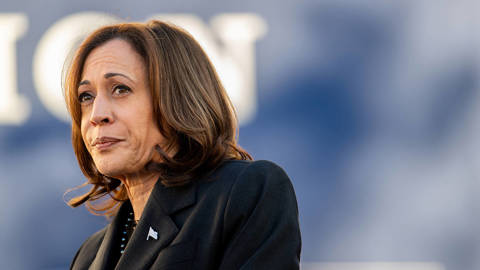
Our Contributors
-
Sarah C. Haan is Professor of Corporate Law at Washington and Lee University School of Law.
-
Jörg Haas is Head of International Politics at the Heinrich Böll Foundation.
-
Richard Haass, President Emeritus of the Council on Foreign Relations and a senior counselor at Centerview Partners, previously served as Director of Policy Planning for the US State Department (2001-03), and was President George W. Bush's special envoy to Northern Ireland and Coordinator for the Future of Afghanistan. He is the author of The Bill of Obligations: The Ten Habits of Good Citizens (Penguin Press, 2023) and the weekly Substack newsletter Home & Away.
-
Pekka Haavisto served as Finland’s Minister for Foreign Affairs from 2019 to 2023, overseeing the country’s entry into NATO.
-
Muhammad Habash, a member of the Syrian Parliament, is director of the Islamic Studies Center in Damascus.
-
Robert Habeck is Germany's Vice Chancellor and Minister for Economic Affairs and Climate Protection.
-
Raphaël Hadas-Lebel, author of Hundred and One Words about the French Democracy, is a former president of the Conseil d'État (State Council) Social Section and chaired the Conseil d’orientation des retraites (Pensions Advisory Council) from 2006 to 2015.
-
Lawrence Haddad is the lead author of the upcoming 2016 Global Nutrition Report.
-
Nasser Hadian teaches Political Science at Tehran University.
-
Jakob Hafele is Co-Founder, Executive Director, and Head Economist at the ZOE Institute, an independent think tank dedicated to future-fit economies.
-
Sean Hagan, a former general counsel of the International Monetary Fund, is Visiting Professor of Law at Georgetown University Law Center and a non-resident senior fellow at the Peterson Institute for International Economics.
-
Thomas Hager is author of The Alchemy of Air, a history of the Haber-Bosch discovery.
-
Jamal Ibrahim Haidar is a research associate at the Middle East Initiative at Harvard University.
-
Bandar M. H. Hajjar is President of the Islamic Development Bank.
-
Ouafa Hajji is President of Socialist International Women.
Our Pick

Featured
-
Africa’s Hobbled Hegemons Africa’s Hobbled Hegemons
Jul 17, 2024 Adekeye Adebajo
-
Is Greece’s Six-Day Work Week a Harbinger? Is Greece’s Six-Day Work Week a Harbinger?
Jul 19, 2024 Pinelopi Koujianou Goldberg
-
Overcoming Political Short-Termism in Latin America Overcoming Political Short-Termism in Latin America
Jul 18, 2024 Eric Parrado
-
Israel Is Enabling Iran’s War of Attrition Israel Is Enabling Iran’s War of Attrition
Jul 17, 2024 Shlomo Ben-Ami








